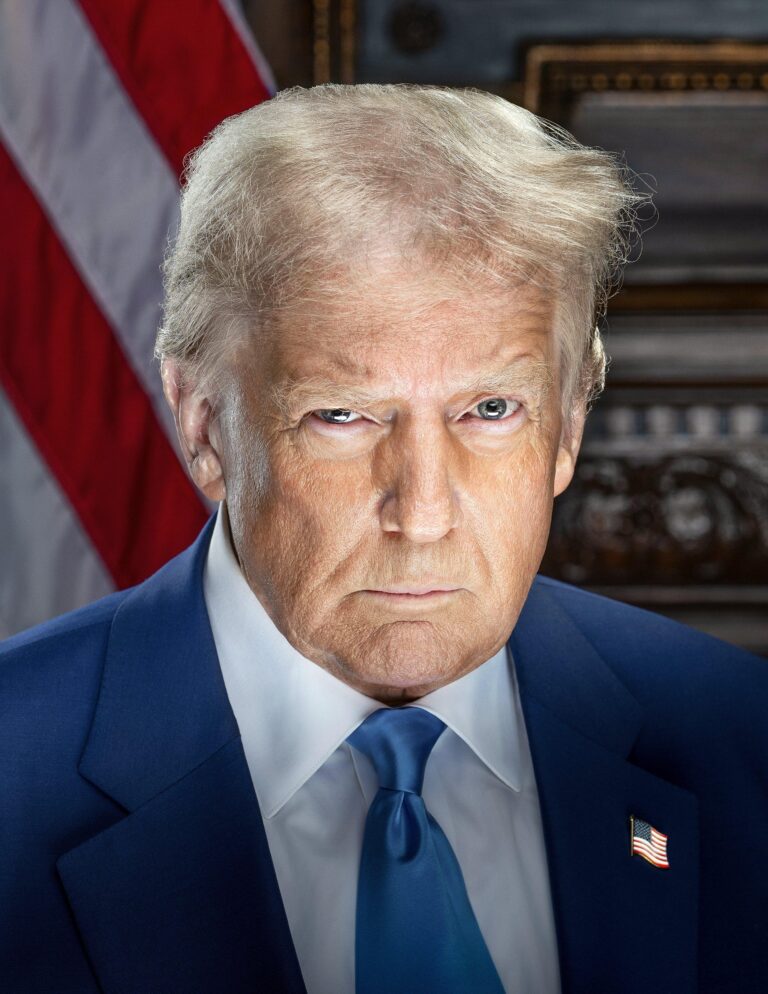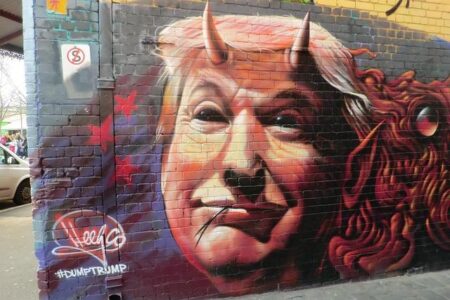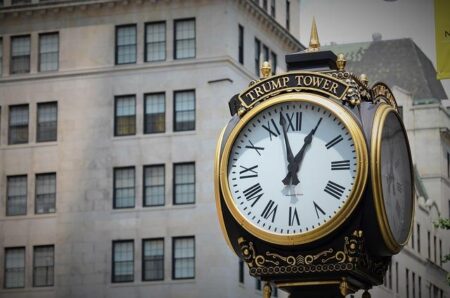In a surprising escalation of trade tensions, former President Donald Trump has announced plans to impose 50 percent tariffs on imports from Brazil, accusing the South American nation of orchestrating a “witch hunt” against his ally, former Brazilian President Jair Bolsonaro. The announcement, which marks a significant intensification of economic pressure, underscores the deepening political and diplomatic rift between the two countries. This development adds a volatile new chapter to the fraught U.S.-Brazil relationship, as both nations grapple with shifting alliances and contentious domestic politics.
Trump Announces Escalating Tariffs Targeting Brazilian Exports Amid Political Tensions
In a sharp escalation of trade tensions, former President Donald Trump has declared plans to impose a sweeping 50% tariff on Brazilian imports, targeting the South American nation’s key export sectors. The move comes amid mounting political friction, with Trump framing the tariffs as a direct response to what he describes as a “witch hunt” against former Brazilian President Jair Bolsonaro. The announcement signals a potential shift in U.S.-Brazil economic relations, likely to reverberate through global commodity markets and bilateral trade agreements.
Key Brazilian exports affected by the proposed tariffs include:
- Beef and poultry products
- Metal ores and minerals
- Crude petroleum and refined oils
- Agricultural commodities such as soybeans and coffee
| Sector | Estimated U.S. Imports from Brazil (2023) | Potential Impact |
|---|---|---|
| Agriculture | $12.3 billion | Surge in costs for consumers and manufacturers |
| Energy | $5.8 billion | Disruption in supply chains and price volatility |
| Mining | $3.5 billion | Decline in raw material availability |
Analysis of Trade Risks and Impact on US-Brazil Economic Relations
The announcement of a potential 50% tariff on Brazilian goods marks a significant escalation in US-Brazil trade tensions, threatening to disrupt an intricate web of economic interdependencies. Key Brazilian exports such as soybeans, beef, and automobiles face direct vulnerability, which could in turn precipitate substantial retaliatory measures from Brazil. The agricultural sector, a cornerstone of Brazil’s economy, could experience volatility as increased costs weigh heavily on American importers and consumers alike. This development risks exacerbating existing concerns around supply chain reliability and commodity price fluctuations in global markets.
Stakeholders from both nations must now navigate a landscape fraught with increased uncertainty. Below is a simplified comparison highlighting sectors most impacted and potential economic repercussions:
| Sector | Potential Impact | US Consumer Effect |
|---|---|---|
| Agriculture | Reduced exports, price volatility | Higher food prices, supply gaps |
| Automotive | Import restrictions, increased costs | Higher car prices, fewer options |
| Energy | Disrupted oil & biofuel trade | Increased fuel costs |
The looming imposition of tariffs underscores the fragility of bilateral relations, as political rhetoric overtakes diplomatic channels. Industry leaders and policymakers are now facing mounting pressure to reassess trade strategies, seeking avenues to mitigate damage through alternate markets or enhanced domestic production. The ripple effects extend beyond economics, posing challenges to broader geopolitical cooperation between the United States and Brazil.
- Potential retaliation: Brazilian counter-tariffs on US goods.
- Investment shifts: Hesitation among multinational corporations.
- Diplomatic strain: Reduced bilateral dialogue on economic policies.
Experts Recommend Strategic Dialogue to Ease Diplomatic Strain and Stabilize Markets
Analysts and policymakers emphasize that reopening channels of communication between the U.S. and Brazil is critical to mitigating the escalation prompted by the recent tariff announcements. They argue that strategic dialogue could defuse tensions that risk not only bilateral relations but also broader market stability, particularly given the interconnected nature of global supply chains and emerging economies. Without a concerted effort to engage diplomatically, experts warn that retaliatory measures could spiral, further aggravating uncertainty in commodity markets and investor confidence worldwide.
Industry leaders also underscore the importance of a measured approach, highlighting potential economic repercussions:
- Trade Disruptions: Increased tariffs could disrupt the flow of agricultural goods and raw materials.
- Market Volatility: Heightened political risks tend to drive fluctuations in currency and stock markets.
- Investment Hesitation: Prolonged diplomatic strain discourages foreign direct investment and innovation.
Targeted diplomatic talks, experts say, offer a pathway to recalibrate policies and reinforce mutual economic interests, turning down the heat before market instability develops into a systemic crisis.
| Potential Impact | Short-Term Effects | Long-Term Risks |
|---|---|---|
| Tariff Hikes | Supply chain interruptions | Sustained trade conflict |
| Diplomatic Freeze | Market anxiety | Investor withdrawal |
| Policy Uncertainty | Currency fluctuations | Reduced economic growth |
In Retrospect
As tensions escalate between the United States and Brazil, President Trump’s announcement of a 50% tariff signals a significant shift in trade relations, underscoring the fraught political climate surrounding former Brazilian President Jair Bolsonaro. The move, framed by Trump as a response to what he terms a “witch hunt,” is likely to further complicate diplomatic and economic ties between the two nations. Observers will be watching closely to see how Brazil responds and what impact these tariffs may have on the broader geopolitical landscape.




